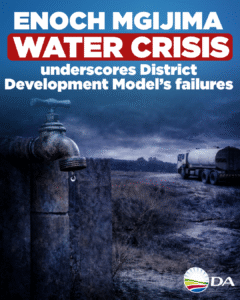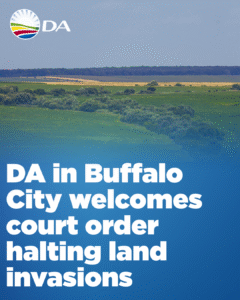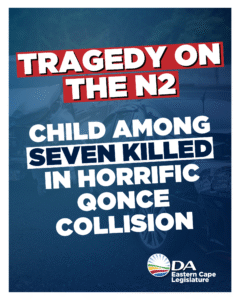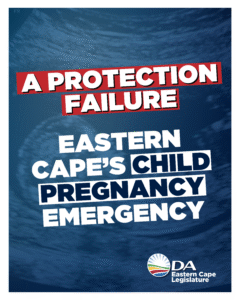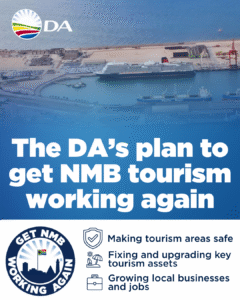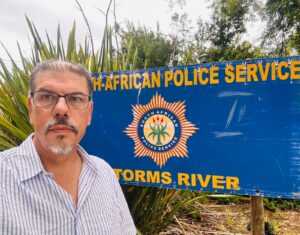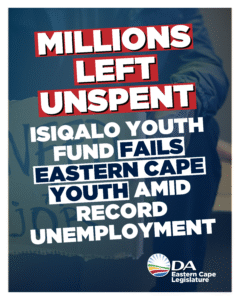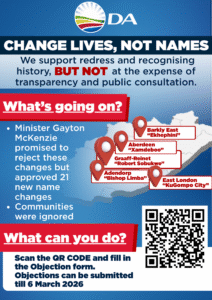The Democratic Alliance (DA) today submitted a matter of public importance for debate in Council regarding the Nelson Mandela Municipality’s plan to mitigate the drought experienced in the Metro.
I have written to the Speaker of the Nelson Mandela Bay Council, Cllr Buyelwa Mafaya, and requested this debate in terms of Rule 28 of Council Rules: Matter of Public Importance.
The combined levels of the Metro’s main supply dams recently dropped below 17% and Day Zero is now imminent.
On 21 July 2020, I wrote to the self-styled “interim” Mayor, Cllr Thsonono Buyeye, requesting him to deliver a report on the Metro’s plan of action for when supply dams run dry. Cllr Buyeye has deemed it fit not to respond to my letter.
Due to low dam levels, the western suburbs of the Metro have already experienced significant water interruptions. Some areas have to make do without water for days on end.
The City has not been upfront with residents regarding infrastructure built to ensure that water from the Nooitgedacht Low Level Scheme can be reticulated to the southern and western suburbs, should supply from the dams run dry.
High-lying and peri-urban areas are at significant risk of running dry if steps are not taken, and this is a major cause for concern. Peri-urban areas in the western suburbs – such as Greenbushes and St Albans – regularly go without water for days.
Additionally, at full capacity, Nooitgedacht can only provide 210 megalitres of water per day to the Metro. The City’s daily water consumption currently stands at almost 300 megalitres per day. If no water can be extracted from our dams, demand will outstrip supply.
The additional capacity offered by the new Coegakop Wellfield Treatment Works will only be completed in 2022 and therefore does not provide a solution to the current crisis
Despite this, the Municipality has made no progress in reducing consumption.
In terms of the matter of public importance debate I have, therefore, requested that the Acting City Manager delivers a report to Council in respect of:
- What plans have been put in place to mitigate the crisis if the Metro’s dams reach Day Zero?
- What plans have been put in place to reduce daily consumption from 300 ML to the targeted 250 ML?
- What infrastructure upgrades are still required to reticulate the water from the Nooitgedacht Low Level Scheme to the western and southern suburbs of Port Elizabeth should the dams run dry?
- What plans have been made to ensure a sustainable water supply to the peri-urban areas as well as high lying areas in the Metro should the dams run dry?
- What communication plans have been put in place to keep residents informed if the City experiences extended water interruptions?
We believe that it is our duty to ensure that the Council keeps all residents abreast of developments with regards to this severe unfolding crisis.
The Covid-19 pandemic is sweeping through the Metro and, during this time, the provision of water and proper sanitation is of the utmost importance.
The DA continues to fight for the people, to save lives and livelihoods, and to move Nelson Mandela Bay forward again.
